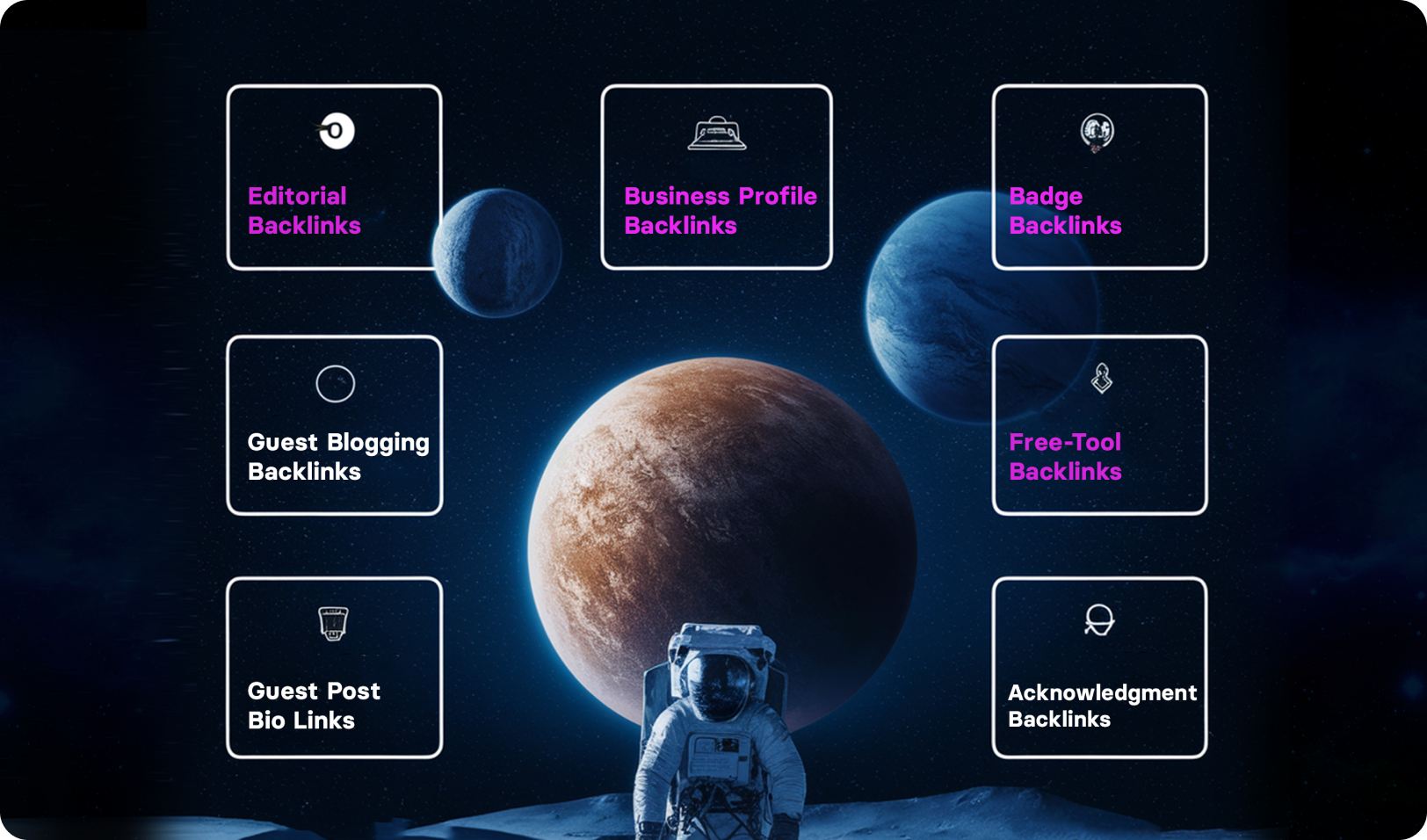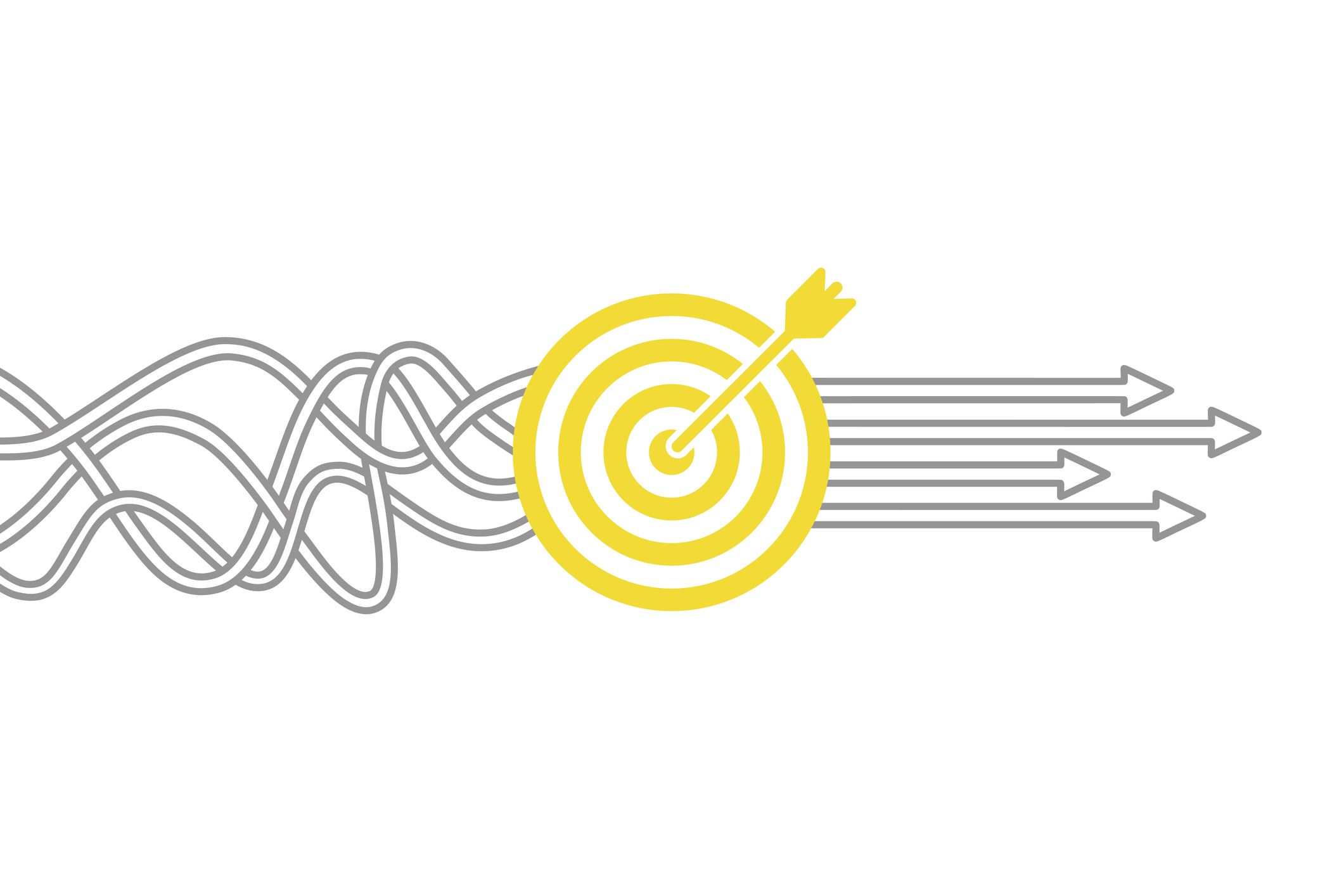How Many Types of Backlinks Are There in SEO?


Backlinks aren’t just links between sites, they’re trust signals, showing search engines which sites are credible and worth ranking higher in search results.
Securing backlinks from reputable, high-quality sources can give your search engine rankings a powerful boost, bringing in more organic traffic along the way.
And these are the only types of backlinks that matter, as they tell search engines that your content is valuable and trustworthy – two must-haves for SEO success.
Let’s dive into the specifics of different types of backlinks.
Dofollow and Nofollow Backlinks in SEO
In the world of SEO, not all backlinks are the same.
One key distinction is between dofollow and nofollow links.
Dofollow Links pass authority, or “link juice,” from the referring site to yours. They are highly valuable because they signal to search engines that your content is credible and worth ranking.
Nofollow Links, on the other hand, have a rel=”nofollow” attribute added to them, which instructs search engines not to pass authority to the linked page. However, they’re still important for a healthy backlink profile.
In fact, Google’s top-ranked web pages typically have around 20%-40% nofollow links pointing to them. This balance tells Google that the page has a natural mix of inbound links, which is essential for high rankings and maintaining credibility.

Different Types of SEO Backlinks
Here’s a breakdown of some of the most impactful ones:


1. Editorial Backlinks
Editorial backlinks are gold in the world of SEO.
Being cited within someone else’s content as a source not only strengthens your site’s credibility but may also bring in valuable referral traffic from high-authority sites.
To earn editorial backlinks, develop content that other sites will want to cit. Include linkable assets like data-driven insights that make your content both valuable and shareable.
Utilize strategies like newsjacking, tapping into trending news or reactive PR through platforms like Connectively (formerly Help a Reporter Out – HARO).
2. Guest Blogging Backlinks
Guest blogging backlinks are a staple in link-building strategies. To earn guest blogging backlinks, reach out to websites within your industry and offer high-quality, relevant articles that add genuine value to their audience.
Focus on contributing well-researched content that seamlessly includes a backlink without being overly promotional.
These backlinks typically appear in either the main content or author bio, depending on the site’s guidelines.
3. Business Profile Backlinks
These backlinks come from creating digital profiles for your business on social networks, business directories, and industry sites.
To secure these backlinks, create profiles on high-authority directories, social media platforms, and relevant industry listings.
4. Badge Backlinks
Creating badges that recognize other companies or individuals is a strategic way to build backlinks.
When a site displays your badge, it typically includes a link back to your website.
To build badge backlinks, develop a badge program for achievements, partnerships, or certifications.
5. Free Tool Backlinks
Offering free tools – such as calculators or templates – can attract backlinks from sites interested in sharing these resources.
Promoting free tools on websites that serve similar audiences is an effective way to draw attention and gain long-lasting backlinks that drive both SEO value and traffic.
6. Acknowledgment Backlinks
Acknowledgment backlinks are earned when your site is recognized for contributions, sponsorships, or other forms of support.
Once you identify the sources of your competitors’ acknowledgment backlinks, you can develop a strategy to gain similar recognition.
Sponsoring events, making donations, or partnering with notable organizations can increase your chances of earning these valuable backlinks.
Types of Backlinks to Avoid
Some backlinks can boost your rankings, while others can tank them.
Here’s a rundown of the types of backlinks you should absolutely avoid if you want to keep your SEO clean and penalty-free:


1. Link Schemes
Link schemes are the dark side of link-building.
This involves any unnatural strategy to manipulate your rankings – basically anything that’s against Google’s guidelines.
Here’s what counts as a link scheme:
- Going overboard on link exchanges.
- Buying or selling links.
- Embedding links in footers distributed across hundreds of sites.
- “Followed” links in paid ads.
- Keyword-stuffed guest posts and spammy comments.
If you’re engaging in any of these, you’re playing with fire.
Google’s algorithms are good at spotting these tactics, and when they do, they will penalize.
2. Private Blog Networks (PBNs)
PBNs might sound tempting – they are collections of sites created solely to link back to your site and boost your rankings. But here’s the reality – Google hates PBNs.
They’re the opposite of natural link-building and violate Google’s Quality Guidelines. Getting caught with PBN links can result in harsh penalties that will bury your site in search results.
Bottom line? Just say no to PBNs.
3. Automated Links
Automated link-building tools promise tons of links for a low price, but those links come with a high risk.
These links are generated at scale, and while they might give you a temporary bump, they’ll eventually hurt your SEO.
Google sees this tactic as manipulation, so automated links will do more harm than good.
4. Low-Quality Forum Links
Dropping links in forums used to be a popular tactic, but low-quality forum links are mostly useless today.
They’re usually seen as spam and don’t offer any real value.
If you’re going to use forum links, make sure they fit naturally within a relevant discussion – anything else will likely be ignored by search engines and dismissed as spam.
5. Non-Newsworthy Press Release Links
Press releases are valuable – if they’re newsworthy.
A press release can give you a credible backlink if you’ve got something big to announce, like a product launch, rebranding, or major acquisition. But using press releases just to get links is a waste of time and won’t help your SEO.
Stick to sharing real news.
By avoiding these types of backlinks, you’re setting yourself up for sustainable, long-term SEO success because quality beats quantity every time.
Quick Recap
Backlinks are the backbone of SEO. They’re signals to Google that say: “This site is legit and worth ranking.”
But to get the most out of them, focus on earning high-quality, relevant backlinks from trusted sites.
Forget shortcuts and schemes -natural, diverse backlinks from great sites are what Google wants to see.
Yes, it takes time.
But when done right, a strong backlink profile is a total game-changer for your rankings.
And we are here to help you with that.
Book Your Initial Call
Please share your details with us, we will get back shortly







